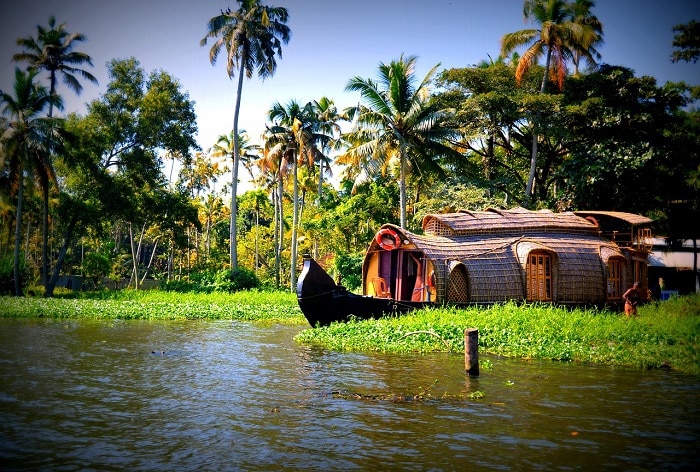
Kerala To Be Renamed 'Keralam': State Assembly Passes Resolution

Thiruvananthapuram: The Kerala Assembly on Wednesday unanimously adopted a resolution urging the Centre to officially change the state’s name to ‘Keralam’. Chief Minister Pinarayi Vijayan presented the resolution in the Kerala Legislative Assembly requesting the Centre to change the name of the state. Explaining the rationale behind the resolution, Vijayan argued that the state’s name has always been Keralam in Malayalam. However, he said, it was referred to as Kerala in other official languages, as mandated under the eighth schedule of the Constitution. “States were formed on linguistic lines in the country on November 1, 1956. Kerala’s formation day is also on the same day. It was a demand during the freedom struggle to form a united Kerala State for all Malayalam-speaking people,” he said.
“This Assembly unanimously requests the Union Government to take immediate steps to amend it as Keralam under Article 3 of the Constitution. This House also requests that our land be renamed as ‘Keralam’ in all the languages mentioned in the Eighth Schedule of the Constitution,” he added.
There are several theories about the origin of the name ‘Kerala’. The earliest epigraphic record that mentions Kerala is emperor Asoka’s Rock Edict II of 257 BC. The inscription refers to the local ruler as Keralaputra (Sanskrit for “son of Kerala”), and also “son of Chera” referring to the Chera dynasty, a report in The Indian Express said.
About ‘Keralam’, scholars believe it could have originated from ‘Cheram’
Dr. Herman Gundert, a German scholar who published the first Malayalam-English dictionary, observed the word ‘keram’ is the Canarese (Kannada) form of cheram, and he described Keralam as Cheram — the region between Gokarnam and Kanyakumari. The origin of the term could possibly be from the root ‘cher’, which means to join. This meaning is clear in the compound word ‘Cheralam’, in which alam means region or land.
Before gaining independence, the state was occupied by three independent provinces named Malabar, Cochin and Travancore, the latter two being erstwhile princely states. Kerala was created long after India gained independence in 1947.
Several major agitations for political rights and a popular government began in Kochi and Travancore soon after independence. On July 1, 1949, the provinces of Travancore and Cochin were merged by the government of India under Sardar Vallabhbhai Patel.
However, till the mid 1950s the land continued to be politically divided, despite geographic similarities and solidarity of language. During this period that communism managed to take firm roots in the region, which went on to be recognised by Leftist ideology.
In 1956, the borders of modern Kerala came into existence when the Travancore-Cochin state was merged with the Malabar district – which then belonged to Madras Presidency under the British – and the Kasaragod area of South Canara district. Some parts of southern Travancore, such as Kanyakumari, went to the Madras state as part of the exchange.
The truth is, Kerala becoming ‘Keralam’ won’t really cause much change since the latter becomes prominent while speaking in Malayalam.
If at all such a change is brought into effect, it might only affect the formal domains of book-keeping and the day-to-day affairs of the Government of Kerala.
The West Bengal government wants to rename the state to ‘Bangla’ in all three languages – Bengali, English and Hindi. In July 2022, the Ministry of Home Affairs told Parliament it has received a proposal from the Mamata Banerjee-led government in this regard.
In 2011, Orissa had become Odisha and the name of its language was changed from Oriya to Odia as the Orissa (Alteration of Name) Bill, 2010 and the Constitution (113th Amendment) Bill, 2010 was passed in Parliament.
It is not only states but several cities have also been renamed in the last few years or so.
The name of the ‘Rajahmundry’ city in Andhra Pradesh was amended to ‘Rajamahendravaram’ in 2017.
‘Nagar Untari’, a town in Jharkhand, became Shri Banshidhar Nagar in 2018. The same year, the city of ‘Allahabad’ in Uttar Pradesh was renamed ‘Prayagraj’.
In 2021, the name of Madhya Pradesh’s ‘Hoshangabad Nagar’ city was changed to ‘Narmadapuram’ and ‘Babai’ city became ‘Makhan Nagar’.
‘Shri Hargobindpur’ city in Punjab was renamed to ‘Shri Hargobindpur Sahib’ in March last year, as per NDTV.
With inputs from agencies
For breaking news and live news updates, like us on Facebook or follow us on Twitter and Instagram. Read more on Latest EXPLAINERS News on India.com.
Enroll for our free updates
